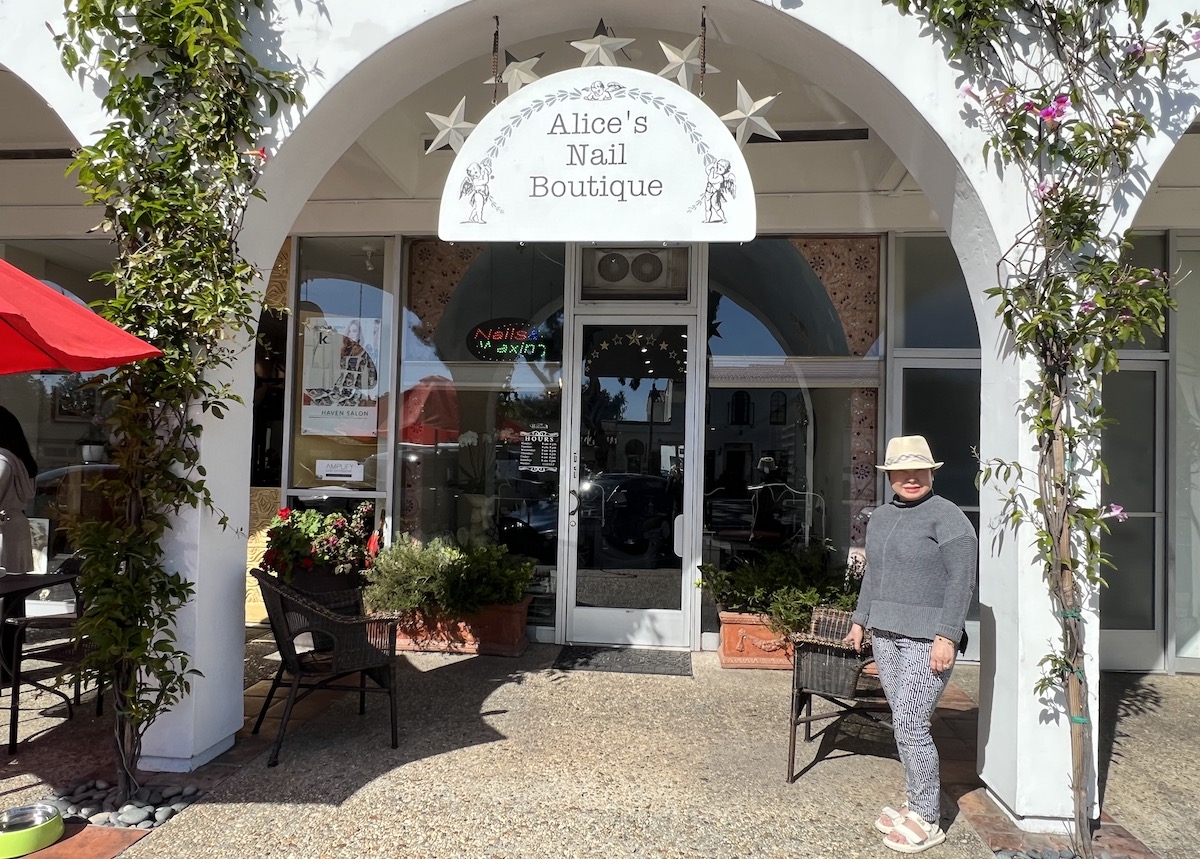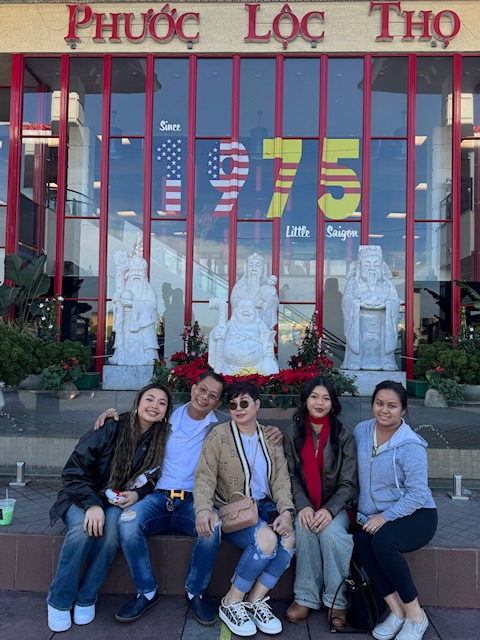Alice Tran: Tough as Nails

In the war’s aftermath there were hundreds of thousands of scores to settle, and the new government wasted no time getting down to business. Former army officers, religious leaders, those who had worked for or with Americans or the old government; they were all asked to register with the new authorities, who would call them back for retraining at a time to be decided. In the meantime, these thousands upon thousands of men would have eyes on them every waking moment, they and their families’ movements and lives curtailed to a standstill.
So it happened that a husband, father, and former soldier with South Vietnam’s Army of the Republic of Vietnam (ARVN), was for years hectored and harassed by the war’s victors; unified Vietnam’s new government. Even as this former soldier’s heart began to fail him and he grew weak, he refused to bow before his country’s new masters. Finally, he and thousands of others were told to report to various locations and were summarily thrown into “re-education camps”. The gentleman spent three brutalizing years in deplorable conditions where he would “learn about the ways of the new government.” The chronic heart condition he had on entering the prison worsened considerably. When he was finally released back to his wife and two daughters, it was to a life of virtual immobility. And he was dying.
“They were still controlling,” Alice says of her father’s release. “You go anywhere, you must report to them. They would watch you, everything you do.” When her father’s heart began truly to fail he reluctantly submitted himself for a procedure. “My dad had a bypass surgery, and after that he went through a lot of pain and a lot of illness. And even then, the communist government won’t let my dad do anything.” Even as a freed man, he and his family were prisoners in their own country, tightly surveilled and restricted until daily life was little more than a peeling away of the family’s options – of their humanity. If he was deemed insufficiently grateful for his release, he could be summarily picked up and sent back to the camp. It became clear that Alice’s father would die in the country of his birth, under the shadow of a paralyzing oppression. “And that’s when he started to talk about freedom,” Alice says earnestly. “Yes. We’re going to escape to freedom. And he would take me first.”
Escape from Da Nang
Alice Tran is a familiar fixture on Coast Village Road, striding confidently around in her white fedora, managing the care of her beloved clients with a daunting efficiency. “I’m very ambitious,” Alice says matter-of-factly. “And everything I do has to be perfect.” Alice’s Nail Boutique has, in its sixteen years of Coast Village business, become Montecito’s go-to destination for manicure, pedicure, facial waxing, hand and foot massage; a generalized palatial pampering. Alice’s place is also, of course, a de facto community center – a trading post of relaxed village conversation.
But the Alice we see bustling about her impeccable Coast Village spa and salon was – once upon a darkling time – a frightened 13 year-old fleeing the wreckage of a homeland eating itself alive with post-war violence and recrimination. There were several attempts. “I escaped with my dad so many, many times,” Alice says. “I escaped Da Nang in ’80, and in ’82. But I escaped with my dad successfully in ’84.” Because her father, a former soldier for the south, was a target of the new government, he knew the chances of successfully escaping were slim. He took Alice with him. If he and Alice were able to get through, he planned to return for his wife and Alice’s two sisters when times were calmer and less dangerous. They would follow two years later.
Open Water in the South China Sea
The Vietnam war had officially “ended” with the fall of Saigon in 1975. But for the former “South Vietnamese” – America’s onetime allies in that civil war – a new epoch of misery was just beginning as collective punishment was enacted and a desperate and massive migration of refugees began. It’s estimated that between 1975 and 1995, some 800,000 Vietnamese people fled their homeland by boat and made it, in some condition, to another country. But between 200,000 and 400,000 refugees perished at sea. “I have a cousin who went with two brothers and they died in the ocean,” Alice says. The ragtag flotilla of fishing and other boats were attacked by pirates, drowned in the turbulent waves, or had their small engines quit, casting the foodless, waterless, crowded boats adrift in the trackless ocean. Countless little boats were simply swamped by the weight of the desperately crowded escapees and sank in the middle of the South China Sea.
Under cover of night, Alice and her father joined some 30 others on a small fishing boat and shoved off from coastal Da Nang. “We went to Hong Kong in a little boat on the ocean. We almost died,” Alice says. Hong Kong was an on-again off-again port of entry for the flood tide of escaping Vietnamese, and 670 nautical miles from Da Nang. “There was a lot of waves – a storm. No food, no water, and no sight of land.” When seas were calm the boat barely cleared the surface. “I think around 30 people were on the small boat. And it was very close to the water.” Alice gestures to indicate about 8 inches between the deck and the sea. Incredibly, they made landfall in Hong Kong. Alice’s dear father was rushed to a Hong Kong hospital and had his heart properly addressed, though he would be forever compromised. They lived in the Chi Ma Wan Detention Centre for two years, and in that time Alice befriended a young man. “We met each other when we lived in the camp,” she says, smiling.
Homecoming

Alice’s new friend would leave Chi Ma Wan Detention Centre before her, saying his goodbyes and travelling with a contingent of other refugees to the Philippines where a sort of school had been set up to acculturate the Vietnamese who were USA-bound. Through years and miles – thousands of miles – the two would stay in touch. “But we wrote letters at that time, no phone, no nothing,” Alice says. Each would marry and begin anew in the States, Alice and her father – and in time her mom and two sisters – making a life in San Jose for 14 years. Alice would go to school, and thereafter learn the skills she has now long since mastered, becoming licensed at 17. She would marry and divorce. When one day a letter arrived, it was from the pal she’d met in Hong Kong’s Chi Ma Wan Detention Centre. He had ended up in Simi Valley, and was by then himself divorced. The spirit-breaking circumstances of Alice’s leaving Vietnam and coming to America; the story seems a bit dark to accommodate a word like “Kismet”. But when a bolt of sunlight pours into the room, call it
what you will.
“He had moved up to the central coast from Simi Valley with his family,” Alice says, “because he had a sister go to UCSB. He moved here and he stayed.” And he had taken to the area. “He said he wants to live here and to die here. He doesn’t want to go anywhere else. That’s when I got back with him. And I moved here from San Jose.” Vietnam has liberalized somewhat. Google “escape Da Nang” and you’ll be assaulted by towering beachfront hotels and vacay come-ons with the theme ”Escape to Da Nang.” On a visit several years ago, Alice found her old neighborhood gone and everything otherwise changed. It is no longer the ruined place she fled, but neither is it completely free. And neither is it home anymore. Alice looks at me with a firm expression. “Here there is freedom to speak. Over there you have to watch out when you say something. Here is my home because I love this country.”
Alice and her friend had bumped into each other in another time and place under extremely trying circumstances 7,100 miles away. Today the former detainees are man and wife with three grown daughters. Alice Tran’s first job on arriving in Montecito was with Leora Gaspar at her salon Red Studio, and under Leora’s friendship Alice truly inhabited the artist she is today, opening her own boutique and falling in love with her clients, Montecito, her family, and life itself.
Her dear father, a guiding light through her darkest period, is gone. “He passed away seven or eight years. My dad…” she says, and goes momentarily silent. “Talking with my dad, I always remember and I have a tear. I never forget when I spent time with my dad, the two of us alone in Hong Kong. A lot of memory…” Imagine, if you can, 13 year-old Alice grasping her father’s hand as they and a group of terrified strangers push carefully away from the moonlit coast of Da Nang in utter silence. Then the terrifying open sea, landfall, and her dad’s wounded heart; never completely healed, but finally whole. The story brings Alice to the impossible sweetness of Coast Village Road. What she and her father endured together is indescribable, and now he has passed through to yet another shore. The bond between a dad and his daughter is special, I offer. “Yes, yes,” Alice nods, her eyes clouding. “Very special.”







You must be logged in to post a comment.